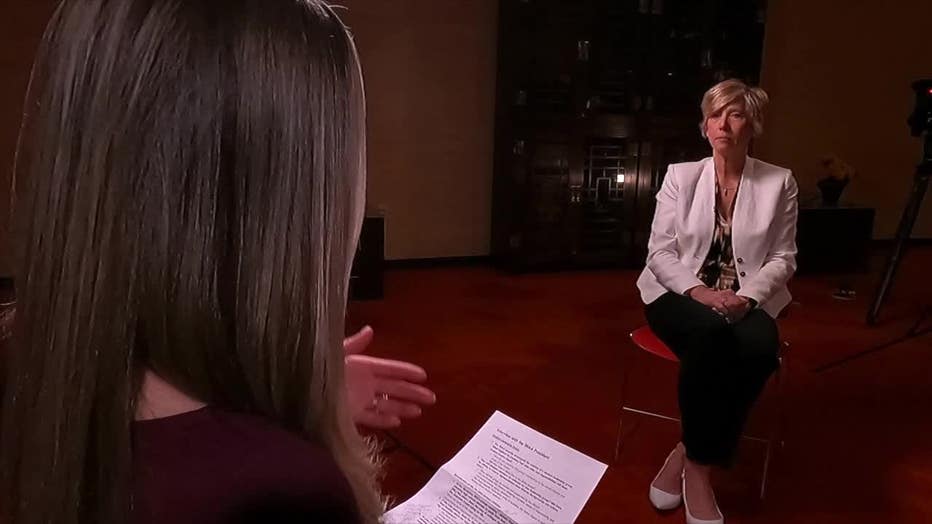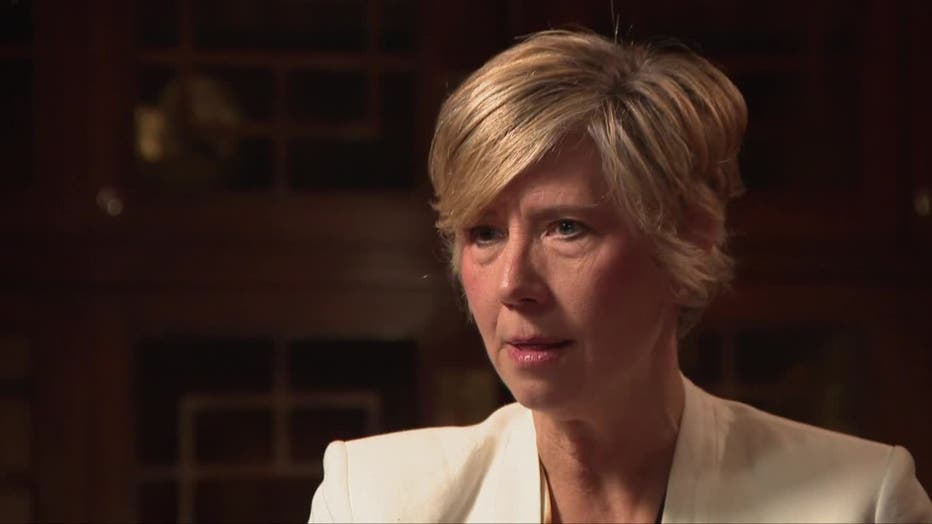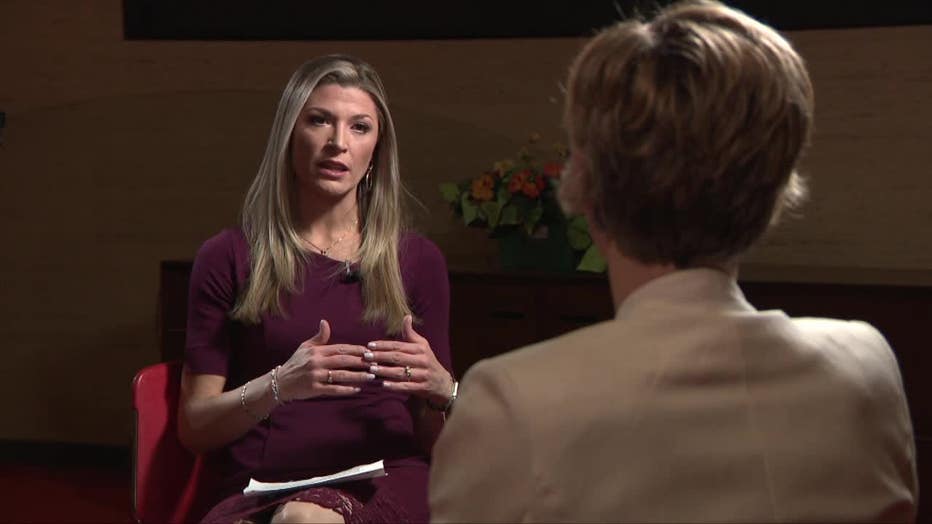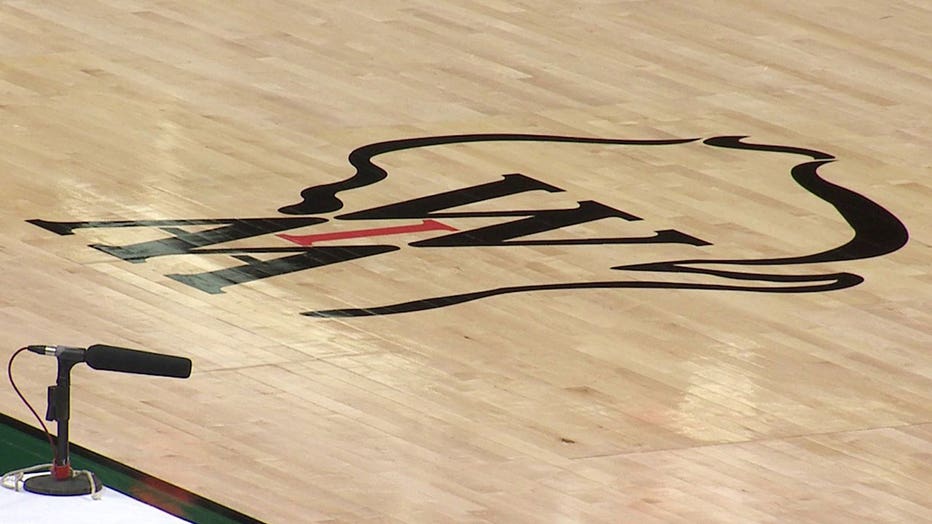NIL deals for Wisconsin high schoolers could soon be a reality
MILWAUKEE - It’s a new concept for collegiate athletes across the country – the ability to make money with their name, image and likeness. Think – playing cards, merchandise, and autograph signings.
What’s become known as NIL is trickling down to the high school level as well. Most states now allow high schoolers to make money with their NIL. Wisconsin, however, does not – at least not yet.
FOX6’s Stephanie Grady sits down with the executive director of the Wisconsin Interscholastic Athletic Association (WIAA), Stephanie Hauser, to discuss how that may soon change for good.
Stephanie Grady: At the upcoming annual meeting, which is coming up on April 24th, athletic directors, they're going to vote on allowing high school athletes to profit from their name, image and likeness -- like what's been the case in colleges and universities since 2021 with the Supreme Court's ruling on NIL. What are some of the main arguments you anticipate hearing from both proponents and opponents of this?

Stephanie Hauser
Stephanie Hauser: This is something our membership has been discussing for the past three years very actively. And each year, the interest in intrigue and possibly adopting it has grown. And so we've seen that the scale has kind of tipped to the point where we believe it is time for the membership to take a vote on that. The largest argument against allowing this for student athletes is truly just how do we protect the integrity of high school athletics if we allow this door to be cracked open? That's the that's really the biggest argument that I've heard against it. It's a philosophical view is that it doesn't belong in high school athletics. Yet we are seeing that 31 other associations have found a way to make it work. So, we have looked at the language that they have added, and we have mirrored the language that our membership will be voting on, because again, we are seeing it. It can work.
SIGN UP TODAY: Get daily headlines, breaking news emails from FOX6 News
Grady: Do you feel that there's any positives when it comes to professional development and just exposure at a young level? If a young athlete were to strike an NIL deal -- big or small -- within their local community, do you think that there's any benefit when it comes to just getting that experience and exposure at a younger age?
Hauser: It's a fair question. And I always see, pluses and minuses about every situation. It's a learning opportunity. And for most high school students, that opportunity isn't going to be presented to them. So we're talking about a very, very small percentage of student athletes that will have that opportunity in high school. But for those, absolutely, it's a learning opportunity, a chance to show, some new talent that they have some different talent, that they have some entrepreneurship that they maybe weren't allowed to explore prior to this opportunity. So, sure, there are some positives that I can see for them.

Stephanie Hauser
Grady: Will the WIAA have any hand in monitoring potential NIL deals and ensure compliance with any of the established rules that you guys set forth.
Hauser: Often we're compared to the NCAA, but the WIAA does not have an eligibility or an investigative branch. So no, the school themselves will be the ones to educate the parents and the student athletes and then to address any potential eligibility issues.
Grady: When it comes to, say, a student makes a deal with a local coffee shop to use their name, image and likeness. Is it up to the school, their particular school, to decide whether or not they are able to wear their athletic uniform and any of that branding?

Hauser: The language that we have proposed for the membership would not allow that. They would not allow the student to use the school. The school's name, logo, mascot, uniforms, conference. So the current language, if it is voted in, would not allow that to happen. The student will have to be solely using their own name, image, or likeness.
Grady: How can the WIAA balance the educational and developmental aspects of high school sports with the growing commercialization of athletics?
Hauser: High school athletics different than college and professional sports, is a not-for-profit landscape. And so that has helped high schools to preserve that integrity and that exploitation. Again name, image and likeness tiptoes into that area. But it doesn't apply as much to the high school. Now, we rely heavily on the coaches, heavily on their athletic directors and the families to be aware, be educated, and ask questions when they aren't sure to protect our student athletes and to truly not allow themselves to become exploited. To allow high school athletics to truly just be about the game.
FREE DOWNLOAD: Get breaking news alerts in the FOX6 News app for iOS or Android
Grady: What message would you like to convey to student athletes, coaches, officials, even fans out there about the importance and the value of high school sports for these kids?
Hauser: It is called education-based athletics for a very specific reason. That is it. That is intentional because it is all about learning. It's about learning the game. It's about learning who you are as a person as you're going through adolescence. It's about learning how to be a great teammate, how to be a communicator, how to be a part of something bigger than yourself. That is that is why so many people are so passionate about it. And the value that it brings to a community, to a school, it's like nothing else you could ever see. And so, I'm so proud to be in the role that I'm in. I feel so honored to be able to be the person that is the spokesperson for this. It's a unique and wonderful thing that helps kids create lasting memories.

The 515 member schools in Wisconsin will vote on name, image and likeness for high school athletes on April 24.
If it passes, the constitutional change will take effect at the end of May. If it does not, Hauser says NIL is not going away and they will likely rework the language and present it again next year for a vote.

